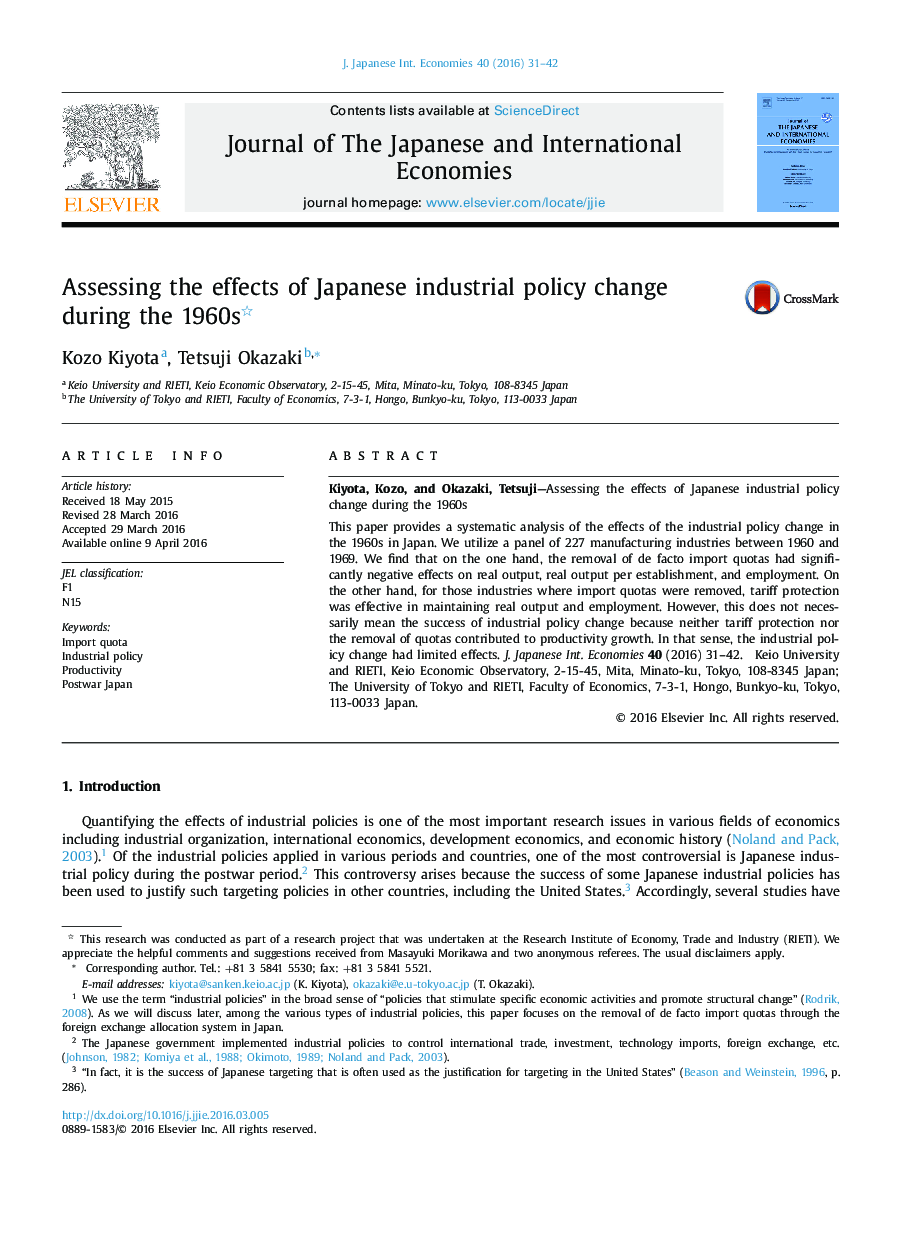| Article ID | Journal | Published Year | Pages | File Type |
|---|---|---|---|---|
| 964885 | Journal of the Japanese and International Economies | 2016 | 12 Pages |
•This paper provides a systematic analysis of the effects of the removal of de facto import quotas in 1960s Japan, using a set of detailed industry-level data.•We found that the removal of quotas had significantly negative effects on real output, real output per establishment, and employment.•For those industries that removed import quotas, tariff protection was effective in maintaining real output and employment.•Neither tariff protection nor quota removal contributed to productivity growth. Furthermore, the rationalization effect was not found.
This paper provides a systematic analysis of the effects of the industrial policy change in the 1960s in Japan. We utilize a panel of 227 manufacturing industries between 1960 and 1969. We find that on the one hand, the removal of de facto import quotas had significantly negative effects on real output, real output per establishment, and employment. On the other hand, for those industries where import quotas were removed, tariff protection was effective in maintaining real output and employment. However, this does not necessarily mean the success of industrial policy change because neither tariff protection nor the removal of quotas contributed to productivity growth. In that sense, the industrial policy change had limited effects.
